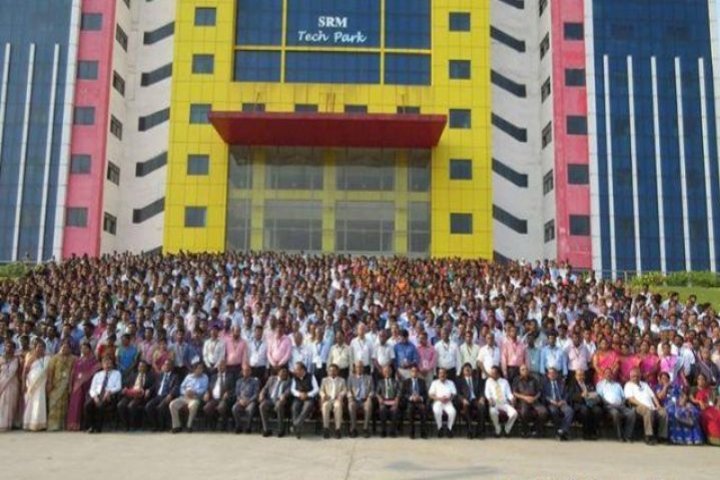
Artificial Intelligence Course Details - Fees, Subjects, Syllabus, Duration, Eligibility, Career Scope
Degrees offered: B.E /B.Tech, M.Sc., B.Sc., M.E /M.Tech., B.Sc.(Hons)
What is Artificial Intelligence
Artificial Intelligence courses are designed to impart knowledge on various topics in AI, including machine learning, deep learning, natural language processing, computer vision, robotics, and data analytics. Pursuing a career in Artificial Intelligence can lead to success as AI will require development, maintenance, and sales.
There are many career options available for candidates who graduate with an Artificial Intelligence degree such as Machine Learning Engineer, Data Scientist, and AI Research Scientist. For admission to UG courses, students are required to complete their 10+2 with PCM from a recognised board, similarly for a postgraduate course they need a Bachelor’s degree in a relevant discipline.
Highlights - Artificial Intelligence
| Particulars | Values |
|---|---|
Branch Name | Artificial Intelligence |
Degrees | UG: B.Tech in Artificial Intelligence, B.Sc in Artificial Intelligence PG: M.Tech in Artificial Intelligence, M.Sc in Artificial Intelligence |
Duration | UG: 3-4 years PG: 2 years |
Admission Process | UG: Entrance Exam PG: Entrance Exam |
Entrance Examination | JEE Main, GATE, AP PGECET, UPCET, AP EAMCET, KEAM |
Eligibility Criteria | UG: 10+2 Examinations and Entrance Exam PG: BE/B.Tech Degree in Engineering |
Course Fee | Rs. 9,200 to Rs. 16.0 lakhs |
Career options | Machine Learning Engineer, Data Scientist, AI Research Scientist, AI Consultant, Natural Language Processing (NLP) Engineer, Computer Vision Engineer |
Average Salary | Rs. 11 LPA (AI Engineer) |
Specialisation or Similar Ones
Artificial Intelligence is a broad term and many courses can be pursued in this specialisation. Courses can be pursued at the undergraduate level and postgraduate levels to gain knowledge of Artificial Intelligence. The courses are mentioned below:
B.Tech Artificial Intelligence | BTech in AI and ML |
BSc Artificial Intelligence | MTech Artificial Intelligence |
MSc in Artificial Intelligence | PGD in Artificial Intelligence & Data Science |
Top Artificial Intelligence Colleges in India with Fees
Artificial Intelligence courses are offered by numerous universities and colleges. The fee for Artificial Intelligence is primarily based on the degree programme chosen by the student, as well as the type and location of the college. Below is a list of some of the India's top colleges offering Artificial Intelligence courses, along with their respective fees:
| Colleges | Fees |
|---|---|
Rs. 6.32 Lakhs | |
Rs. 5.56 Lakhs | |
Rs. 3.28 Lakhs | |
Rs. 1.72 Lakhs | |
Rs. 2.80 Lakhs | |
Rs. 1.97 Lakhs | |
Rs. 9,200 | |
Rs. 44,600 | |
Rs. 3.05 Lakhs | |
Rs. 2.19 Lakhs |
Note: The fee structure provided above can be for any particular Artificial Intelligence course (Diploma/ Degree/PGD).
Top Private Artificial Intelligence College with Fees
Several private universities and colleges in India offer Artificial Intelligence courses. Admission is granted based on previous academic performance and the results of entrance examinations. The table below provides a list of some of the best private colleges in India that offer Artificial Intelligence courses, along with their respective fees:
| Colleges | Fees |
|---|---|
- | |
Rs. 17 Lakhs | |
Rs. 2.98 Lakhs | |
Rs. 2.26 Lakhs | |
- | |
Rs. 5.02 Lakhs | |
- | |
- | |
Rs. 2.4 Lakhs | |
- |
Top Government Artificial Intelligence Colleges in India with Fees
Many government universities and colleges in India offer Artificial Intelligence courses. Admissions to these courses are determined based on previous academic achievements and entrance examination scores. The table below lists some of the best government colleges in India that offer Artificial Intelligence courses, along with their respective fees:
| Colleges | Fees |
|---|---|
Rs. 7.22 Lakhs | |
Rs. 9.06 Lakhs | |
Rs. 5.72 Lakhs | |
Rs. 3.05 Lakhs | |
Rs. 8.79 Lakhs | |
Rs. 1.44 Lakhs | |
Rs. 1.65 Lakhs | |
Rs. 1.91 Lakhs | |
Rs. 1.82 Lakhs | |
Rs. 2.28 Lakhs |
Eligibility Criteria (UG & PG) of Artificial Intelligence
Before applying for admission, the candidates must check the eligibility criteria of the preferred institution. Generally, for an undergraduate course, the candidate is required to complete their 10+2 in science stream, similarly for a postgraduate course, the candidate requires a Bachelor’s degree in a relevant discipline.
Eligibility Criteria for UG Courses
The eligibility criteria for an Artificial Intelligence course at the undergraduate level depends on the institute. Students can check the eligibility requirements by visiting the official website of the chosen institute and scoring a valid score.
Students need to complete 10+2 from a recognised board of India in the Science stream with a valid aggregate score.
Students must have studied physics, chemistry, and mathematics (PCM) in their higher secondary years.
They should meet the minimum academic criteria set by the institution.
Proficiency in mathematics, including knowledge of algebra, calculus, and probability theory is required.
Students should appear for the entrance examination specified by the preferred institute, some of the popular ones are JEE Main and VITEEE.
Top Entrance Exams for UG Courses
Many top national-level and state entrance examinations are conducted for admission to India's top engineering institutes. Some important examinations are mentioned below:
| Exam Name | Level | Conducting Body | Exam Schedule |
|---|---|---|---|
National | NTA | ||
National | IIT Bombay | ||
State | JNTU Kakinada | ||
State | Commissioner for Entrance Examinations |
Eligibility Criteria for PG Courses
The eligibility requirements for a postgraduate course in Artificial Intelligence may vary depending on the institution but there are some general eligibility requirements required by every institute. These eligibility requirements play a vital role in the admission process of the Artificial Intelligence course. Mentioned below are the important eligibility requirements for a PG course:
Students should complete a bachelor's degree in a relevant field, such as computer science, mathematics, engineering, or a related discipline.
They need to meet the minimum academic performance criteria set by the institution.
Some institutions may require students to have prior knowledge or coursework in artificial intelligence, machine learning, or related subjects.
Top Entrance Exams for PG Courses
Those who are interested in pursuing a postgraduate degree in Artificial intelligence are required to appear for the respective entrance exams. Popular entrance exams are as follows:
| Exam Name | Level | Conducting Body | Exam Schedule |
|---|---|---|---|
National | IITs | ||
State | Sri Venkateswara University Tirupati | - |
College Predictors VIEW ALL
Scope of Artificial Intelligence in India and Abroad
The scope of Artificial Intelligence in India is very vast and promising, with advancement in technology, AI has become a crucial part of many industries such as healthcare, finance, and e-commerce. This has led to a surge for qualified AI professionals, which makes it a promising career choice.
Many big companies such as Amazon, Google and Facebook have already started implementing AI assistants and tools. The demand for AI (and hence AI experts) will increase phenomenally. Especially in the initial years, the demand will be greater than the supply. The same case is for countries outside India.
Course Fees Artificial Intelligence
| Minimum Fees | Maximum Fees | |||
|---|---|---|---|---|
| Private | Government | Private | Government | |
| UG | ||||
| PG | ||||
| DOCTORAL | ||||
| DIPLOMA | ||||
Course Subjects
Artificial Intelligence Course Subjects/Syllabus for UG course
The undergraduate degree programme in Artificial Intelligence (AI) equips students with comprehensive knowledge of AI techniques. The curriculum typically includes courses such as Introduction to AI, Machine Learning, Natural Language Processing, Computer Vision, and Robotics. The syllabus for the B.Sc.Computer Science (Artificial Intelligence) programme at Madurai Kamaraj University is mentioned below:
Semester 1 | |
Tamil | English |
Programming in C | Lab 1: Programming in C |
Mathematical Foundations I | Lab 2: Linux Programming |
Value Education | - |
Semester 2 | |
Tamil | English |
Object Oriented Programming with C++ | Lab 3: Object-Oriented Programming with C++ |
Mathematical Foundations II | Design Thinking |
Environmental Studies | - |
Semester 3 | |
Tamil | English |
Data Structures and Computer Algorithms | Lab 4: Data Structures and Computer Algorithms Lab |
Introduction to Artificial Intelligence | Resource Management Techniques |
Lab 5: Python Programming Lab | - |
Semester 4 | |
Tamil | English |
Introduction to Machine Learning | Lab 6: Machine Learning Lab-I |
Soft Computing | Numerical Methods |
Lab 7: Open CV Lab | Extension Activities |
Semester 5 | |
Algorithms in Artificial Intelligence | Machine Learning Techniques |
Principles of Deep Learning | Lab 8: Machine Learning Lab -II |
1. Ethics and Social Implications of AI 2. Digital Image Processing 3. Operating System | Introduction to Computers and Office Automation |
Lab 9:Open source Technology Lab | - |
Semester 6 | |
Internet of Things and Robotics | Natural Language Processing |
Lab 10: Natural Language Programming | 1. Data Science with R Programming For AI 2. Data Mining and Warehousing 3. Software Engineering |
Project Work / Viva-Voce | Introduction to Internet |
Quantitative Aptitude | - |
Artificial Intelligence Course Subjects/Syllabus for PG course
Artificial Intelligence course prepares students for leadership roles in AI research, development, and innovation, equipping them to manage complex challenges and contribute to the advancement of AI technologies. Below, we have mentioned the postgraduate Artificial Intelligence course syllabus.
Semester 1 | |
Artificial Intelligence and Intelligent Systems | Machine Learning |
Natural Language Processing | Programme Elective-I |
Programme Elective-II | AI-based Programming Lab |
Semester 2 | |
Deep Learning | Big Data Analytics |
Speech Information Processing | Programme Elective-III |
Programme Elective-IV | Deep Learning and Data Analytics Lab |
Semester 3 & Semester 4 | |
M.Tech. Dissertation | - |
Careers in Artificial Intelligence
 AI Developer
AI Developer
 Data Scientist
Data Scientist
 Software Engineer
Software Engineer
 Machine Learning Engineer
Machine Learning Engineer
 Artificial Intelligence Engineer
Artificial Intelligence Engineer
Artificial Intelligence (AI) courses offer a wide array of career opportunities, industries are now increasingly integrating AI into their operations. Roles such as AI Specialists, Data Scientists, and Machine Learning Engineers are in high demand. These professionals are tasked with developing and implementing AI models to solve complex business problems. Some of the career options are:
Job Profiles | Job Description |
Software Engineer | Software Engineers are professionals who apply engineering principles to the design, development, testing, and maintenance of software applications. They apply their knowledge of programming to build software solutions for end users. |
ML Engineer | Machine Learning Engineers are responsible for researching, building, and designing artificial intelligence systems. They create AI Algorithms and work as a part of a larger data science team. |
Data Scientist | Data Scientists are professionals responsible for collecting, analysing, and interpreting data. In a real-life scenario, a data scientist will look for instances when a customer abandons a cart and analyse the behaviour of the customer. |
AI Engineer | AI Engineer designs, develops and implements AI solutions and systems. They combine data engineering, data science and software development skills. |
Upcoming trends
With advancements in technology, there is an emerging field of AI. The AI will work in every field. As AI becomes more and more prevalent, people are becoming more conscious of the ethical issues surrounding AI technologies. Making AI models more comprehensible to humans is the goal of AI, as this is essential for user trust, accountability, and regulatory compliance. These trends will definitely flourish in the near future.
Job Profiles and Top Recruiters
 Amazon.com Inc.
Amazon.com Inc. Facebook Inc.
Facebook Inc. Google LLC
Google LLC Microsoft Corporation
Microsoft Corporation Reliance Jio Infocomm Limited
Reliance Jio Infocomm LimitedArtificial Intelligence graduates can work in various domains such as Technology companies, Research Institutions, Healthcare, Finance, Robotics, and Cybersecurity. The choice of career depends on the candidate’s preference, skills, and aptitude.
Average Salary
Students must know the salary of some of the in-demand careers in the field of Artificial Intelligence before applying for the job role. Salary varies based on the location of the company, skills and resume of the candidate, and the job role opted by the candidate. Mentioned in the table are the average salaries:
| Job Profiles | Average Salary |
|---|---|
AI Engineer | Rs. 11.8 LPA |
Machine Learning Engineer | Rs. 10.3 LPA |
Data Scientist | Rs. 14.5 LPA |
Customer Engineer | Rs. 5.7 LPA |
Software Engineer | Rs. 8.5 LPA |
Source: AmbitionBox
Note: The salary may vary depending on various factors.
Required Skillset for Artificial Intelligence
Artificial Intelligence like any other field requires certain skills and students must possess these skills to perform well in their academics as well as in their future careers. Candidates require a blend of practical as well as theoretical skills to do well in their careers. Mentioned below are some important skills in the field of Artificial Intelligence:
- Logical Thinking
- Coding Aptitude
- Analytical Skills
- Interest and Aptitude for AI
- Interest in Technology
- Patience
Course Curriculum for Artificial Intelligence
The Artificial Intelligence ( AI) course provides the students with in-depth knowledge of both basic and advanced concepts of machine learning, networks, and data science. The course provides students with knowledge of both fundamental and advanced concepts. The course curriculum includes topics such as Computer Science focused on engineering, Python, OS, and Design.
Students who complete the Artificial Intelligence (AI) undergraduate degree programme will have a thorough understanding of AI methodologies. The course programme provides in-depth knowledge of topics such as Introduction to AI, Machine Learning, Computer Vision, Natural Language Processing, and Robotics are commonly included in the curriculum.
Popular Artificial Intelligence Entrance Exams in India
JEE Main
Application Process: 01 Feb, 2026 - 25 Feb, 2026
GATE
Declaration of Result: 19 Mar, 2026
JEE Advanced
Application Process: 06 Apr, 2026 - 02 May, 2026
COMEDK UGET
Application Process: 03 Feb, 2026 - 16 Mar, 2026
MAT
Application Process: 02 Mar, 2026
Frequently Asked Questions (FAQs)
Question: What is the average salary of an AI graduate?
Answer :
The average salary of an Artificial Intelligence graduate depends on many factors such as job profile, experience of the candidate, location of the company, and skills of the candidate. The average salary of an AI Engineer in India is Rs. 11.8 LPA.
Question: What are the career options in the field of Artificial Intelligence?
Answer :
There are many career options in the field of Artificial Intelligence such as AI Engineer, Machine Learning Engineer, Research Scientist, Data Scientist and Custom Engineer.
Question: Who is eligible for AI course?
Answer :
The eligibility criteria for the Artificial Intelligence course depend on the institution and the level of education. For an undergraduate course, the candidates are required to clear their 10+2 education in the science stream with a valid aggregate score. For a postgraduate course, the candidates need to have a Bachelor's degree in Artificial Intelligence or related discipline.
Question: What is AI Course fees?
Answer :
The fees for any Artificial Intelligence course depend on the level of education and type of institute. The average fee ranges from Rs. 9,200 to Rs. 5.02 Lakhs.
Question: Does Artificial Intelligence require codings?
Answer :
Yes, AI requires coding to learn, as it involves different kinds of research work and applying algorithms on a system to make a robot work according to our wishes. So, it is important to learn to code for the course of Artificial intelligence.
Question: How many types of Artificial Intelligence?
Answer :
There are four types of AI. They are as follows: limited memory, self-awareness, relative machines, and theory of mind.
Question: Is there any demand for Artificial Intelligence?
Answer :
Artificial Intelligence has a high demand in the present days. AI can transform the present scenario of the global economy.
Question: Does Artificial Intelligence require coding?
Answer :
Yes AI requires coding to learn, as it involves different kinds of research work and applying algorithms on a system to make a robot work according to our wish. So, it is important to learn to code for the course of Artificial intelligence.
Question: Is Artificial Intelligence a good subject for a bright career?
Answer :
Yes, definitely Artificial Intelligence is good for a bright career, as there are plenty of jobs for those who are from an AI background. Some jobs for those from AI background are Data Scientist, AI Engineer, etc.
Question: What do you mean by the artificial intelligence course?
Answer :
Artificial Intelligence is a disciplinary course with machine learning algorithms. This course includes the study of computer science, coding, data science, and psychology.






















